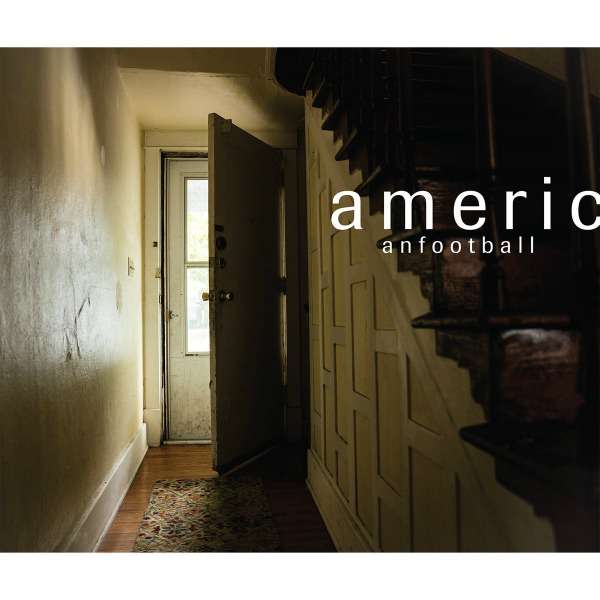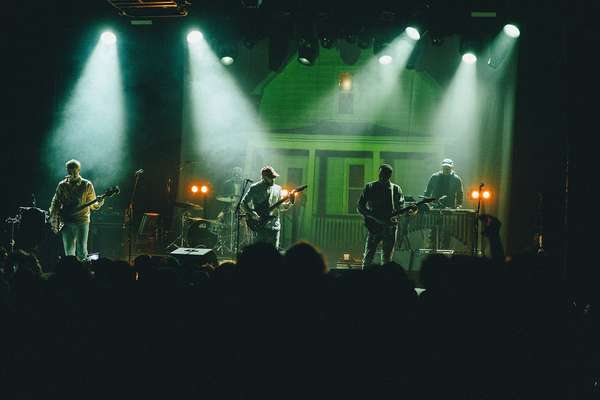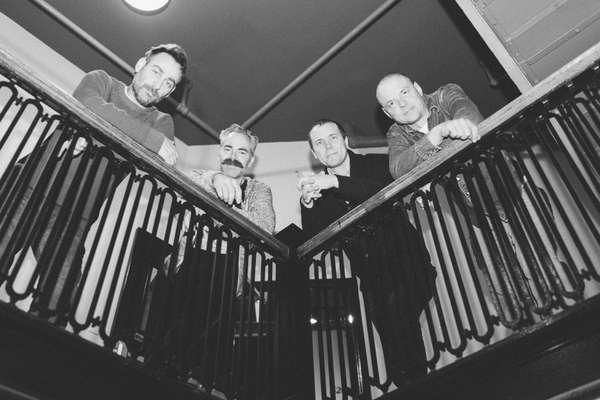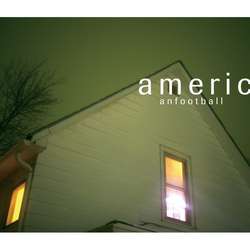American Football are the sort of band that shouldn't have attracted so much attention. When they first properly emerged in 1999, a copy of their eponymous debut in hand, they were still playing small college bars around the University of Illinois at Urbana-Champaign. Their album cover was so low-key it should have been unremarkable, depicting the darkened exterior of a house somewhere in the Midwest, while a bright light illuminated one oblong window. It seemed both voyeuristic and distant, but offered a strange familiarity. They broke up soon after their debut came out, and in any other case the band probably should've faded into irrelevancy. Instead, after American Football disbanded, their fanbase continued to swell and their album became a seminal portrait of late '90s emo, before the subculture came to signify guy-liner and questionable hair.
The house that was a feature of their debut has become something of a pilgrimage for American Football fans, and when the band eventually reunited in 2014 they consistently sold out shows minutes after tickets were released. They reissued their debut in 2014 and it crashed their label's site. To say that their second album was long-awaited would be an understatement. This time the album cover is a photo of the same Urbana house, but now it's the interior, showing the conflict between the bright light beaming in from the front door and the dark shadows that shade the staircase.
The thick melancholy which envelopes this album is sliced into delicate ribbons that twist and wind through every track. "Home Is Where the Haunt Is" despondently intones: "Some things never change/Maybe that's okay", sounding more like an admission of defeat than peaceful acceptance, while the elegiac "I Need a Drink..." wrestles with self-loathing, where any attempts at change are immediately shot down by the admission: "I'm gonna die this way." The relatively uplifting whirr of the guitar chugs and hand claps on "Desire Gets in the Way" adds an unexpected breeziness to proceedings, while the soothing tones of "Give Me the Gun" serve as a delicate reminder of why American Football have endured for so long.
The loss and confusion that informed their debut dealt with all of the difficulties that come with navigating through your teenage years into adulthood, while this time around they sing about failed marriages and a still ever-present uncertainty about life. The lyrics still deal with the more depressing and despondent side of the human condition, and the guitar work is filled with a kinetic energy that propels the morose lyrics. The dour sounds that lead almost every track on this album to end with a lack of hope can become cloying at points, and it happens so regularly that it has the potential to diminish the relateability of the album. Much like their debut, if you're wallowing in sadness this album will make a comfortable acquaintance. It offers a slightly mirrored look into how the band have grown, and it adds to the sense of collectivity that so easily invites fans in. We're no longer outside the house looking in.




